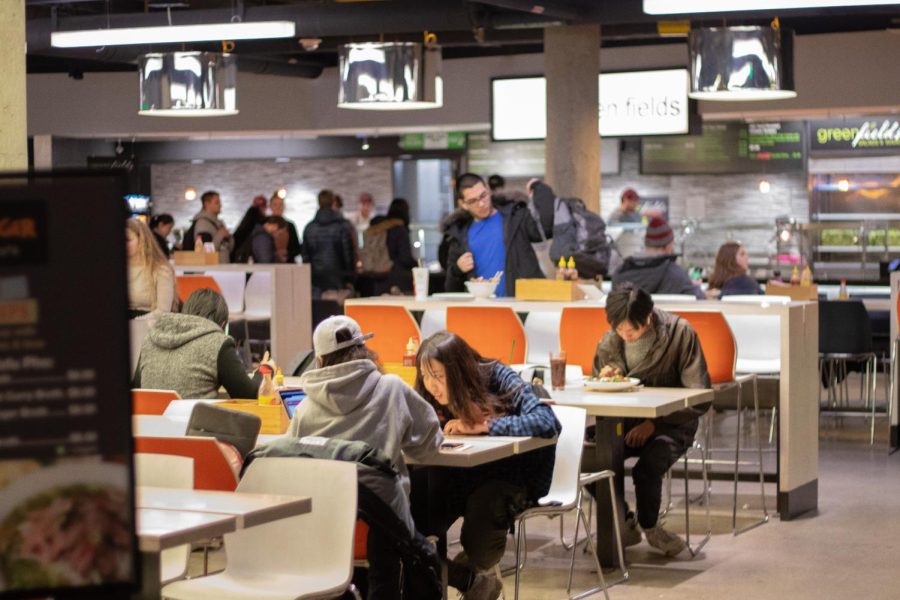As a college student, I constantly hear about all the options we have on campus, so I was surprised to learn there are major restrictions on what beverages students at the University of Massachusetts can enjoy. What’s more, most people don’t even know it.
Every dining hall or vending machine around campus gives a similar array of choices. There’s Dasani, Coca-Cola, Powerade, Minute Maid and Honest Tea. It appears like there are options for everyone, but when you peek behind the curtain, you realize they’re all the same brand. They’re all owned by the Coca-Cola company.
There’s a reason for this, and it’s called a Pouring Rights contract. Colleges across the country periodically renew these agreements, exchanging shelf space, advertising and sponsorships for millions of dollars from big brands. At UMass, it’s Coke, and 80 percent of our shelf space is devoted to its products.
The Pouring Rights contract between UMass and Coca-Cola limits student choice, harms local businesses and makes the community complicit in Coke’s misdeeds around the world. The University can lead the country in ethical food systems by not renewing this contract. That would truly live up to the title of No. 1 dining.
Having UMass’ guaranteed business is good for Coke, but it’s bad for beverage producers in the Amherst area. The company benefits from a captive audience, since college students spend so much time on campus.
Beyond space, they have access to our time. During this crucial period of our lives, as we enter adulthood, we’re exposed to a very narrow range of brands. It’s a vital way for large corporations to get lifelong customers. Plus, these products are far from healthy. It’s harder to make good choices when we’re deprived of options.
Why does it matter to you? You like Coke anyway, or maybe you only drink from a refillable water bottle. Well, Coca-Cola Company is involved with numerous human rights abuses. From being named one of the largest plastic polluters to labor exploitation, Coke is not a company that represents our values. Or at least it shouldn’t be.
In 2001, the company failed to respond quickly after a Colombian paramilitary group executed three union organizers in front of other employees. In Guatemala, there was a pattern of attacks against Coke workers who attempted to unionize. They were beaten, saw family members die, or were killed themselves.
Despite some of these incidents happening inside Coke factories, the company shielded itself from accusations by explaining it used subsidiary companies. In 2020, the New York Post reported that Coca-Cola was lobbying against a bill that would combat forced labor.
In India, a bottling plant was forced to close in 2014 because it was causing droughts by depleting groundwater. The factory’s waste exceeded legal limits for cadmium, lead and other toxic chemicals. If these global impacts weren’t serious enough, the pollution is happening in our own backyard. Last year, a Coca-Cola plant in Northampton leaked waste into the Connecticut River for at least three weeks.
Overall, these practices of abusing workers and the environment are anything but sustainable and ethical.
So, what can be done about this? UMass’ Pouring Rights contract is set to be renewed in 2023, before its expiration in 2024. The Center for Education Policy and Advocacy is pushing the administration’s Pouring Rights Taskforce to set more stringent guidelines for ethics and sustainability among beverage suppliers. This will allow local beverage producers to have a fair shot.
We’ve already seen successes. This is part of a larger national campaign, like when students of San Francisco State University protested a pouring rights contract in 2015. They achieved their goal, and the University did not sign the contract. The University of Vermont and Humboldt State University both allowed contracts to expire after students protested their Pouring Rights contracts.
If you’d like to get involved, CEPA’s offices are in room 309 in the Student Union. This fall, Food Justice meetings are held at 7 p.m. on Wednesdays and General Body meetings are held on Mondays at 6 p.m. Inquiries can be sent to [email protected].
E.J. Everett is a member of the Center for Education Policy and Advocacy at UMass Amherst. They are a sophomore studying Sustainable Food and Farming. They can be reached at [email protected].


















